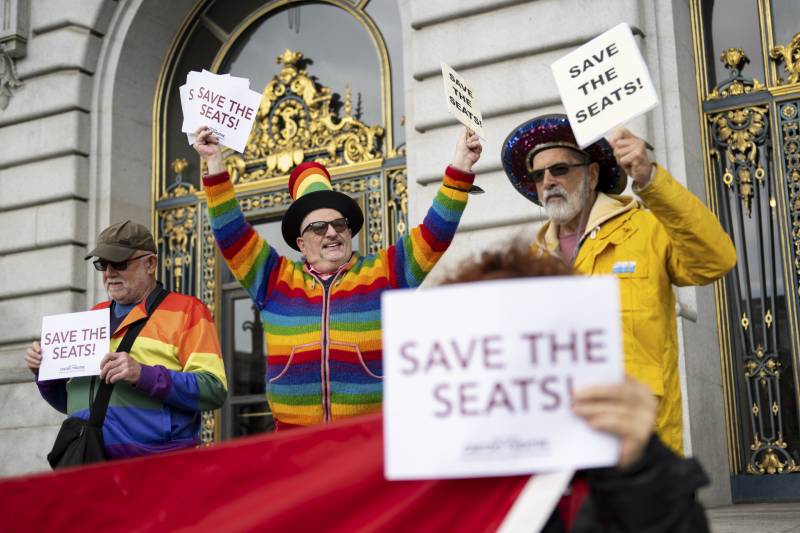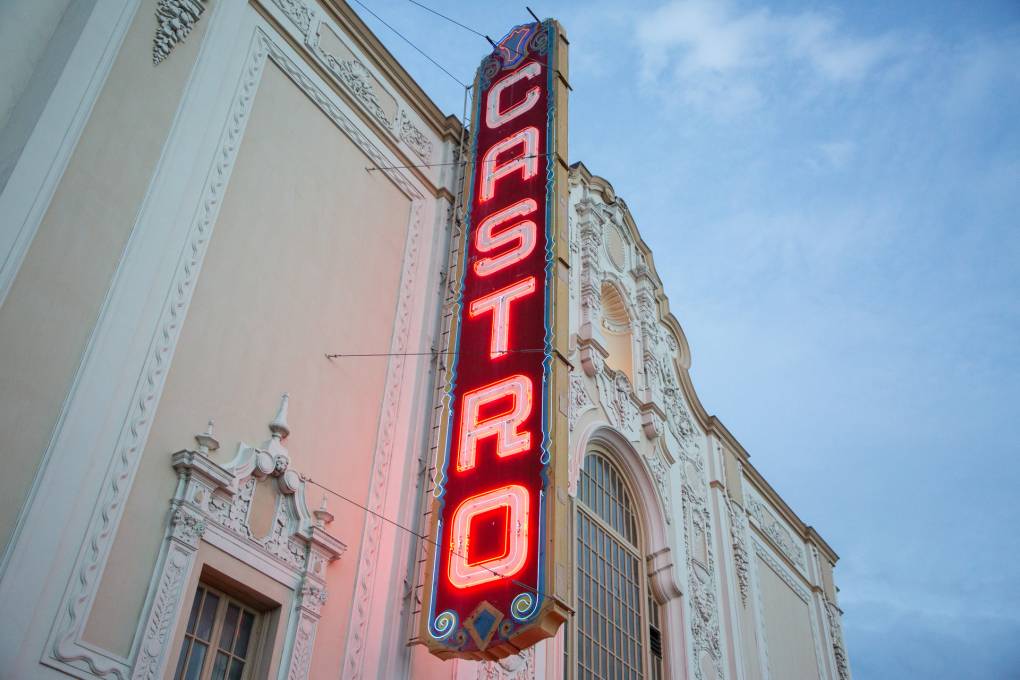But Supervisor Dean Preston, among the minority on the board opposing changes to the theater’s seating, said it didn’t make much sense to designate the inside of the venue a historic landmark but “exclude what are clearly key features.”
The ornate theater, which had long been known as a jewel of the local film scene and a beacon for the LGBTQ+ community, became San Francisco’s 100th historic landmark in 1977, a designation that protected the building’s exterior from demolition or alteration, but did little to ensure the preservation of its interior.
In early 2022, less than two years after taking over management of the Castro, Another Planet Entertainment (APE), a locally owned concert production company that also operates Bill Graham Civic Auditorium and Oakland’s Fox Theater, among other venues, announced major renovation plans for the theater, including removing the current seating arrangement and adding tiered sections for standing-room concerts.
“We want to present all sorts of programming in the theater — comedy, music, film, community and private events and more,” APE said in a statement at the time.
The local film community’s reaction was swift and decisive, with many insisting that APE’s proposed changes would irrevocably compromise a hallowed cultural space.
What followed were rallies, the online #SaveTheSeats campaign, and hundreds of chain emails sent to officials demanding that the inside of the theater be designated a historic landmark to preserve the seat layout. Much of that organizing has been led by the Castro Theatre Conservancy, a nonprofit group whose petition to protect the existing seat configuration as part of the theater’s historic landmark status has drawn more than 12,000 signatures.


